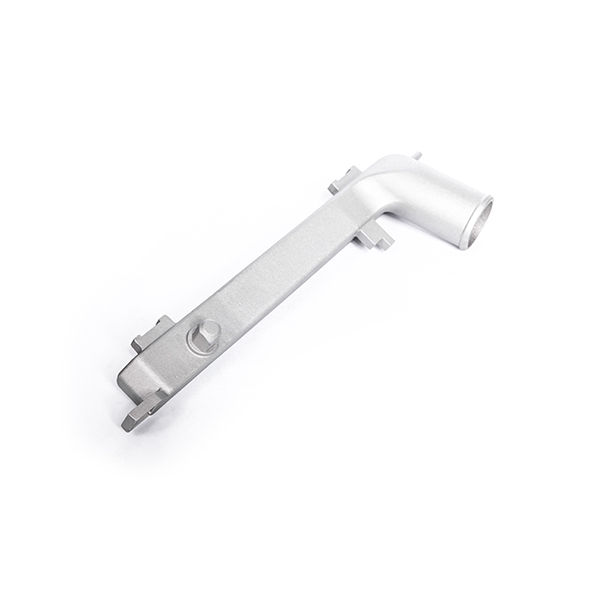Mobile:+86-311-808-126-83
Email:info@ydcastings.com
automotive electric water pump
The Rise of Automotive Electric Water Pumps
As the automotive industry embraces innovations driven by environmental concerns and efficiency demands, one critical component that has garnered attention is the electric water pump. Traditionally, vehicles have relied on mechanical water pumps powered directly by the engine. However, the shift towards electric water pumps marks a significant evolution in automotive cooling systems, yielding numerous advantages and paving the way for more efficient vehicle designs.
Understanding Electric Water Pumps
Electric water pumps serve the primary function of circulating coolant through the engine and radiator to maintain optimal operating temperatures. Unlike their mechanical counterparts, which operate continuously while the engine runs, electric water pumps can be controlled and activated only when necessary. This flexibility allows for more efficient cooling management, reducing energy consumption and enhancing overall vehicle performance.
Advantages of Electric Water Pumps
1. Improved Efficiency One of the most significant benefits of electric water pumps is their ability to operate on demand. By allowing the pump to function only when needed, vehicle manufacturers can reduce parasitic losses associated with engine load, resulting in improved fuel economy. This efficiency aligns well with modern consumers' expectations for environmentally friendly and cost-effective driving.
2. Enhanced Performance Electric water pumps provide precise control of coolant flow. This precision is crucial in high-performance vehicles or in conditions requiring rapid temperature regulation. Whether during start-up, acceleration, or extreme weather conditions, electric pumps can respond dynamically, maintaining optimal engine temperatures more effectively than mechanical pumps can.
automotive electric water pump

3. Design Flexibility The compact size and lightweight nature of electric water pumps enable automotive designers to explore innovative engine layouts and packaging strategies. This flexibility can lead to reduced overall vehicle weight, further improving fuel efficiency and performance while allowing for more space for other components.
4. Integration with Hybrid and Electric Vehicles As the automotive landscape shifts toward electrification, electric water pumps become even more relevant. In hybrid and electric vehicles, where traditional engine cooling systems are challenged, electric pumps are integral for managing thermal dynamics efficiently. They support not only the battery and power electronics cooling needs but also assist in optimizing the thermal management systems that ensure longevity and reliability.
5. Noise Reduction Mechanical pumps can add noise to engine operations due to their reliance on engine speed. In contrast, electric water pumps operate independently from the engine's RPM, allowing for quieter operation. This transition contributes to the overall driving experience, especially in electric and hybrid vehicles, where noise control is paramount.
Challenges and Future Trends
Despite their advantages, the widespread adoption of electric water pumps does face hurdles. Concerns regarding reliability, cost, and maintenance compared to traditional systems must be addressed. Additionally, manufacturers must ensure that the integration of electric pumps does not complicate existing vehicle architectures.
Looking forward, as the automotive industry continues to evolve, the role of electric water pumps will only grow. Ongoing advancements in materials, electronics, and control algorithms promise even greater efficiencies and capabilities. As electric and hybrid vehicles become increasingly prevalent, the electric water pump will play a pivotal role in the quest for greener, high-performing vehicles.
In summary, electric water pumps represent a crucial step in the modernization of automotive cooling systems. Their advantages in efficiency, performance, and flexibility position them as essential components for the future, aligning with the industry's drive towards sustainability and innovation. As technology progresses, these pumps will undoubtedly become a staple in the next generation of vehicles, driving advancements that benefit both manufacturers and consumers alike.
-
Why Should You Invest in Superior Pump Castings for Your Equipment?NewsJun.09,2025
-
Unlock Performance Potential with Stainless Impellers and Aluminum End CapsNewsJun.09,2025
-
Revolutionize Your Machinery with Superior Cast Iron and Aluminum ComponentsNewsJun.09,2025
-
Revolutionize Fluid Dynamics with Premium Pump ComponentsNewsJun.09,2025
-
Optimizing Industrial Systems with Essential Valve ComponentsNewsJun.09,2025
-
Elevate Grid Efficiency with High-Precision Power CastingsNewsJun.09,2025











